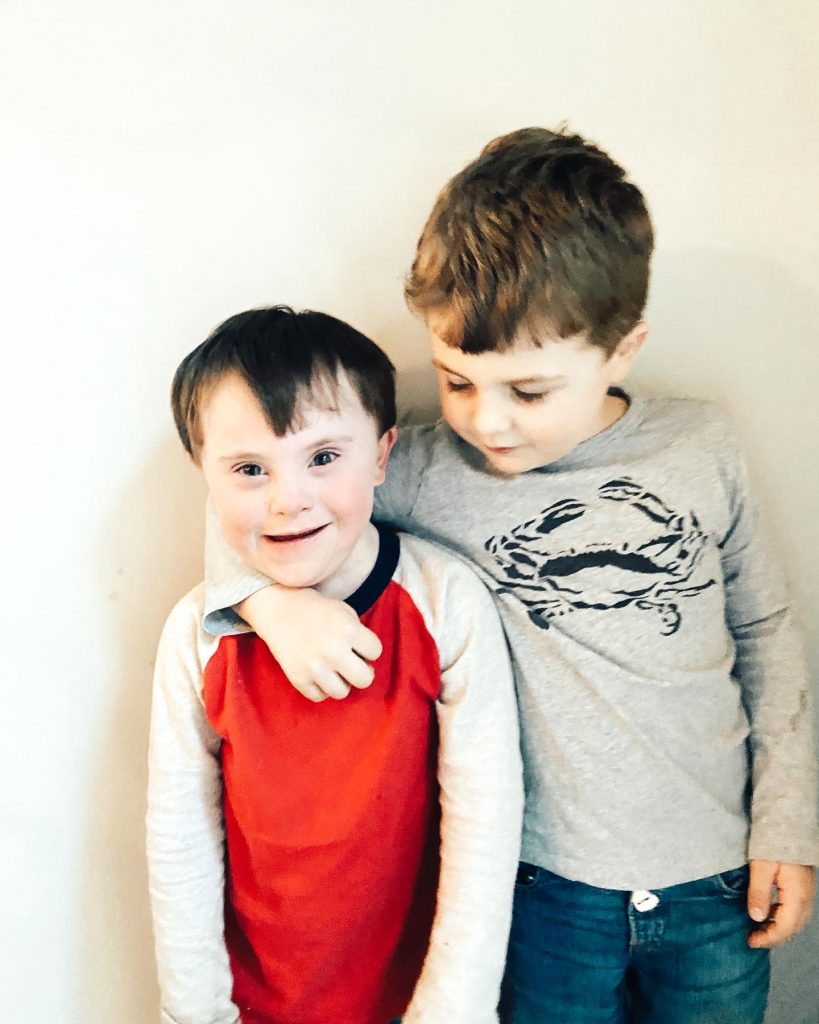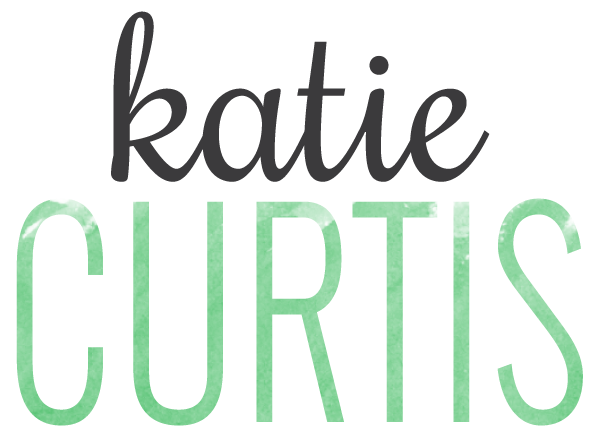The Best of Us

Before I became a mother to a child with Down syndrome, I had spent time deeply thinking about it. When I was pregnant with my first child, I was in a PhD program for Philosophy, and was assigned a paper about the morality of genetic testing and screening for genetic conditions. As I thought about the baby in me growing, I researched what several parents, doctors, hospitals and academics had to say about the subject. It was easy to ask myself the question, what would I do if my child’s tests came back abnormal?
Fast forward to my last pregnancy, and while I was sitting outside of Trader Joe’s one April afternoon, I got a phone call saying just that.
Free cell DNA Blood tests at 13 weeks can now determine Down syndrome with 99% accuracy.
Differing countries have different statistics about what they do with those results. In Denmark, the abortion rate after Down syndrome is detected is 98%. In the US, it is around 67%.
There is no more inflammatory topic in our country then abortion rights. But what if the prejudice that exists around Down syndrome (for what are we doing in deciding to abort a child with Down syndrome but pre-judging what their life, what our life, will be like if they live ) was swapped for some other feature of a child? What if people in the US were screening for and having abortions based on gender or race?
If we were suddenly able to detect muscular dystrophy or autism, and then eliminated those pregnancies at those rates, what are we saying about those who live with those things now, and how comfortable would we be with those numbers?
Having gotten that phone call, I know that the fear of the difficulties that come from raising a child with intellectual disabilities and special needs is what leads people to terminate. But here is the thing: his twin brother is so much harder.
In any given circumstance, his brother – who is very bright, and full of love and enthusiasm – is much harder to parent thanks to a combination of ADHD and sensory issues. As I watch my boys play together I think, if we could test for these things like ADHD and sensory issues, would we be aborting them too?
Recently The Atlantic explored this question in a story entitled ‘The Last Children of Down Syndrome’. Author Sarah Zhang’s compelling journalism shows how prenatal testing is changing who gets born and who doesn’t, and she cautions us that this is just the beginning. She writes: “Down syndrome is frequently called the “canary in the coal mine” for selective reproduction. It was one of the first genetic conditions to be routinely screened for in utero, and it remains the most morally troubling because it is among the least severe. It is very much compatible with life—even a long, happy life.”
A happy life is what is overwhelmingly reported by those living with Down syndrome and their family members. According to the NIH, nearly 99% of people with Down syndrome indicated that they were happy with their lives; 97% liked who they are; and 96% liked how they look. Nearly 99% people with Down syndrome expressed love for their families. Similar happiness numbers are reported by the family members that live and care for people with Down syndrome.
These numbers are even more staggering considering that only 14% of Americans report being happy in a recent post-Pandemic study. As one of those family members, I can tell you that people with Down syndrome bring out joy. In themselves, in others, in our world. So why is something that is reportedly yielding significantly happier people being targeted as a reason to terminate them?
In her research for the Atlantic piece, Zhang writes that a dark history of eugenics is part of the reason. Germany’s treatment of those with disabilities was the same as it was for Jews: the gas chamber. Denmark’s policies never became as systematic and violent as Germany, but they shared similar underlying goals: improving the health of a nation by preventing the birth of those deemed to be burdens on society. Zhang writes, “When Denmark began offering prenatal testing for Down syndrome to mothers over the age of 35, it was discussed in the context of saving money—as in, the testing cost was less than that of institutionalizing a child with a disability for life. The stated purpose was ‘to prevent birth of children with severe, lifelong disability.’”
I think Zhang has put her finger on the pulse of the problem. In educated, wealthy nations, money has become god, and like all true worship, things must be sacrificed to serve it. The problem is, we are sacrificing the very best of humanity.
So where do we look for the burden of proof that the lives of people with Down syndrome are worth living? Not the medical community. When you receive a Down syndrome prenatal test result, the medical community gives weight only to those facts which could require medical intervention. They focus on statistics and problems. This uncertainty leads to fear.
While the medical community has without question helped improve the quality of lives of those living with Down syndrome, when it comes to prenatal testing, they are extremely risk adverse. The group bias around bringing a child to term that has any medical complications is heartbreaking. Ask any mother who received a prenatal test that indicated Down syndrome, and she will tell you the story of someone in her medical team who encouraged abortion, told them how sorry they were, or outright instilled fear. This is where our society needs to start. At the point of care. Let’s talk to families who have children with Down syndrome.
There are signs of hope. Massachusetts General Hospital is a role model – they put families in touch with other families if they receive a Down syndrome test result or diagnosis instead of letting them read a pamphlet of health conditions or worse googling it to see poorly illustrated children that look scary (go ahead, google it and you will see). That is when those happiness numbers play out in the stories and faces of those in this wonderful community. (N.B.: A group of parents are trying to change the scary sketch on Wikipedia! Such a wonderful idea.)
And maybe the Down syndrome community feels very ‘over there. Not my problem’. But chances are someone you love who has a condition will start to be targeted through prenatal tests. If we are going to let fear, comfort, and cost determine what lives are worth bringing into the world, what group is next? The mentally ill? Those with genetic diseases like cystic fibrosis or hemophelia? How comfortable would we be with a screen for autism and a rate of abortion that hovers near 70%?
As a parent of a child with Down syndrome, it looks like a seek and destroy mission. And our world, humanity, has lost something precious with the void that has been created. When my own dentist learned my son had Down syndrome she said, “I used to love seeing my patients with Down syndrome on the schedule because I knew I would get a hug that day. Now, I don’t have any.”
This void erodes the collective human soul, because we are ultimately saying human lives are only valuable when they can ‘contribute’. And the logical deduction becomes that our own lives are only valuable when we are doing, instead of being, which is the source of unhappiness for so many.
Henri Nouwen, world-renowned professor, writer, and theologian, famously shared his story of feeling empty and purposeless as a Harvard professor, until he went to work at L’arche, a community for disabled adults. There, he met Adam, who he says gave him more fulfillment then being an academic, speaker or writer. He says: “As I developed this relationship with this very handicapped person, he taught me that being is more important than doing. He taught me a whole new way, that the heart is more important than the mind. I realized what makes a human person human is that incredible capacity to give and receive love. That’s the center of our humanity.”
My son has given me this gift. There is no greater happiness than loving and being loved. This is why their happiness numbers are so high. Instead of getting rid of these people, we should be learning from them. Instead of deciding what lives are worth bringing into the world, we should be getting clear on what the best of humanity looks like, and then protect that. Spoiler alert: it looks a lot like Down syndrome.


Katie,
This is sooooo good. When you think about things in the context of our faith, where getting to Heaven is the goal, then your little guy is way ahead of the game. When the world proclaims happiness as the ultimate goal, then he’s still in the lead. God doesn’t make mistakes 🙂
Thank you so much Colleen! I was both surprised and not surprised by those statistics but wow, the happiness levels have to point to something good! Unfortunately I think it is that goodness and innocence that is being targeted. 🙁
Katie, Your “Best of Us” in this writing was more than perfect. I can see how God uses people, just like he did prophets (not saying you are a prophet! no offense please), to bring humanity to their knees and thank Him for all the good that exists. Your writing is courageous, compassionate, and precious. Thank you for sharing.
Thank you so much, Evelyn for your kind words. Getting to be Ronan’s mom is the best gift, and thinking that we can be also helpful in bringing about more affection & respect for those with special needs is frosting on the cake.❤️